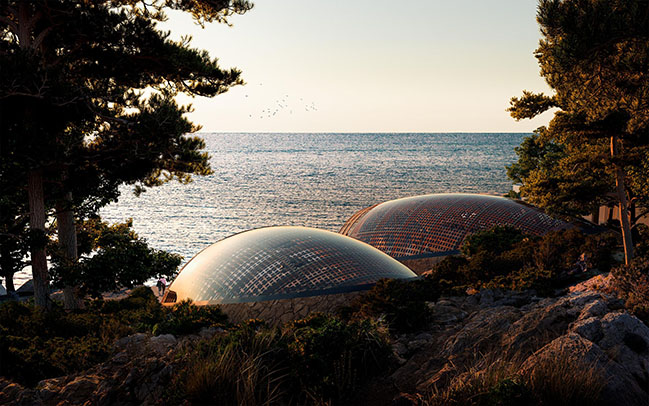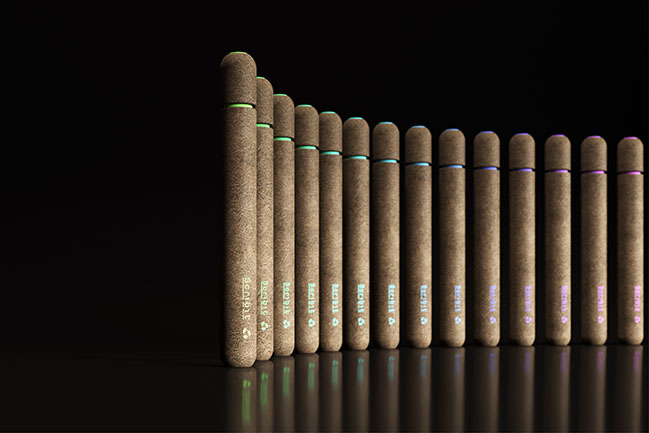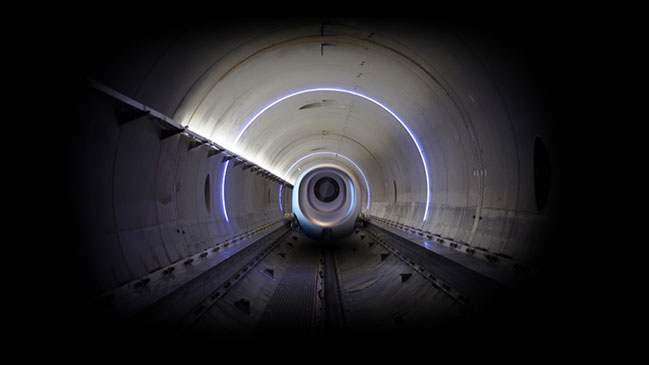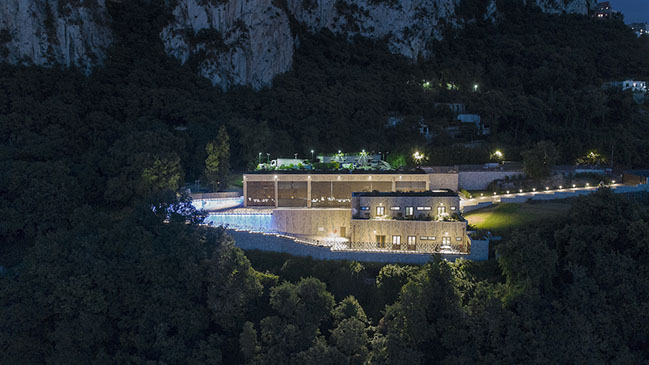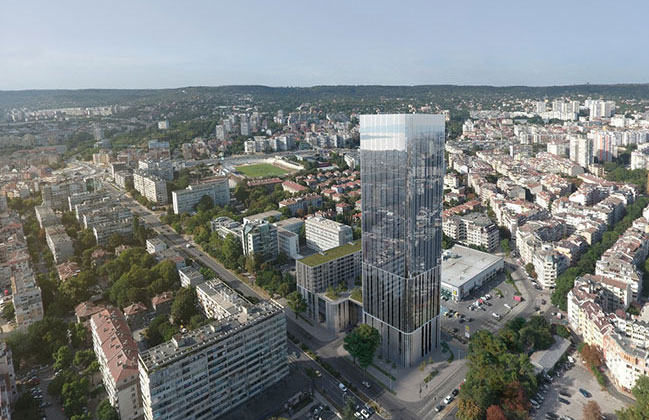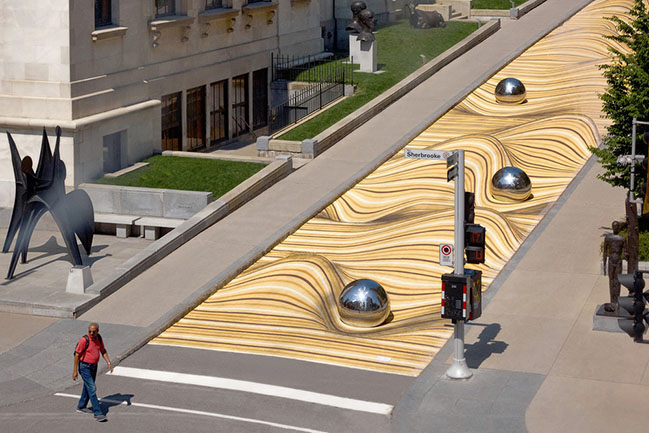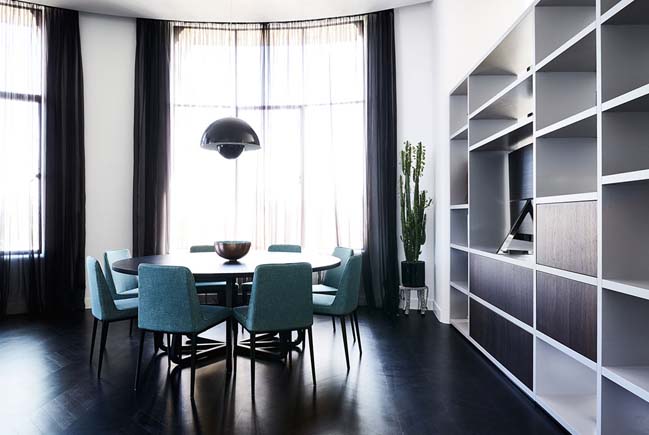11 / 14
2020
MAD Architects' first cultural project in Europe, the FENIX Museum of Migration, has broken ground in Rotterdam. The project was commissioned by the Droom en Daad Foundation.
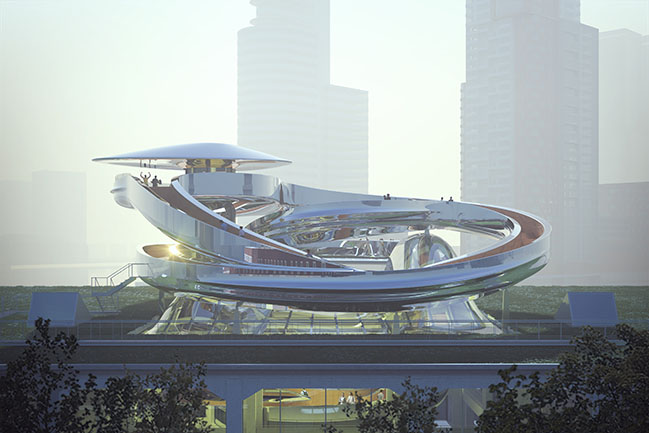
From the architect: The president of the foundation Mr. Wim Pijbes is a leading historian and former general director of Amsterdam’s famous Rijksmuseum. Reflecting on the vision behind the FENIX Museum of Migration, Mr. Pijbes said, “What we want to show is that this is a universal story. People at some point of their lives make a decision, whether it’s forced by war, poverty, religious reasons or something else. They decide to put everything they have into one or two suitcases and to make this journey to a new world and start all over again. What we want to do is to understand the emotion and to show the emotion.”
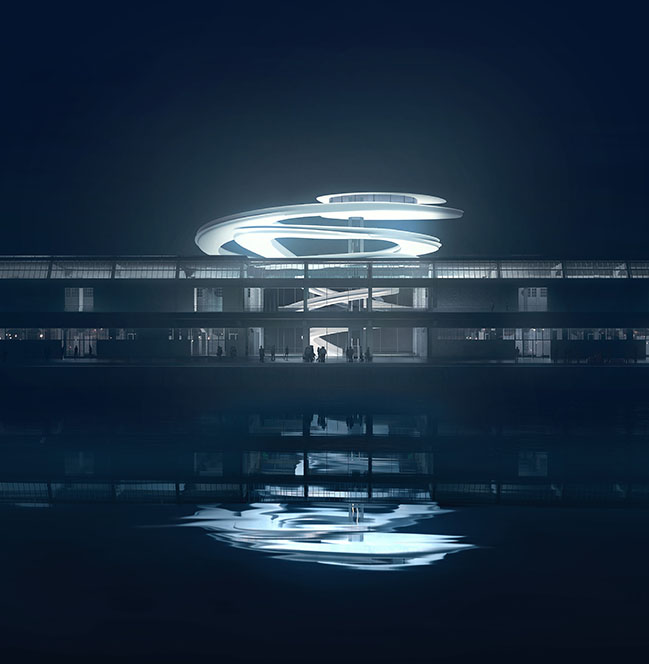
Built in 1923, The Fenix warehouse was once the largest warehouse in the world. Its location on the Katendrecht Peninsula has been an important port of immigration in European history. Throughout the past century, the Fenix warehouse has been entwined with the history of Rotterdam, including destruction during World War II, and multiple repairs in the 1940s and 1950s.
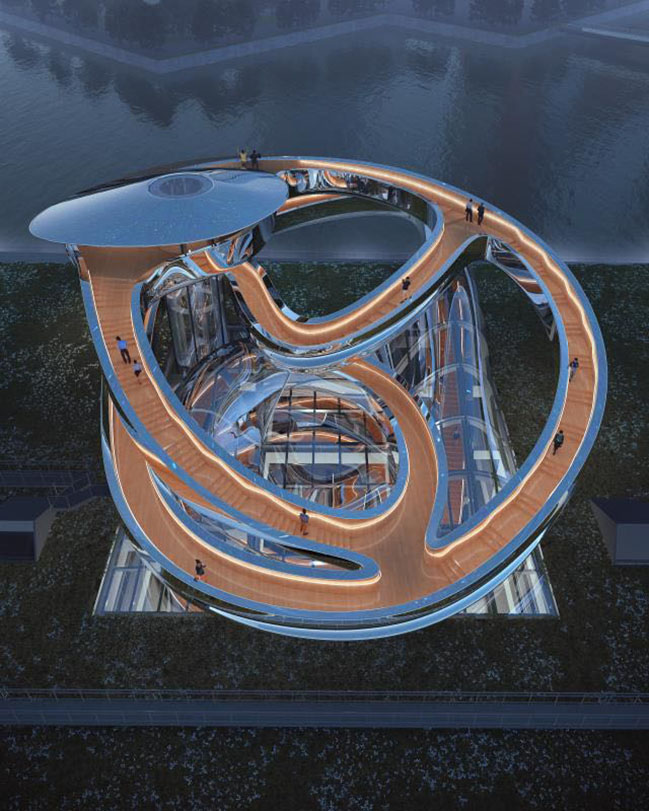
MAD’s renovation of the Fenix warehouse connects the history of Rotterdam with the present. MAD’s founder Ma Yansong said, “From a distance, the platform and staircase look like a single entity, but when it’s in front of you, it stands as a sculptural work that invites you to explore. It both signifies the Fenix’s witnessing of Europe’s history of migration from the port, and symbolizes the future of the city."
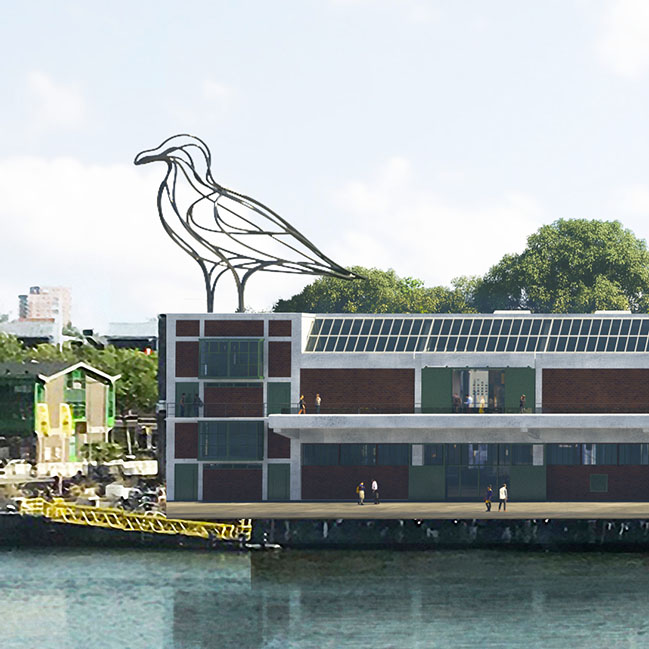
To preserve the building’s historical legacy, MAD’s renovation embraces the iconic green steel windows and the concrete structure of the Fenix warehouse. In the building’s center, the facade and roof are removed and replaced with glass curtain walls and ceilings, creating a flexible and accessible space. The extensive glazing also offers an uninterrupted frame for the scheme’s striking centerpiece staircase structure.
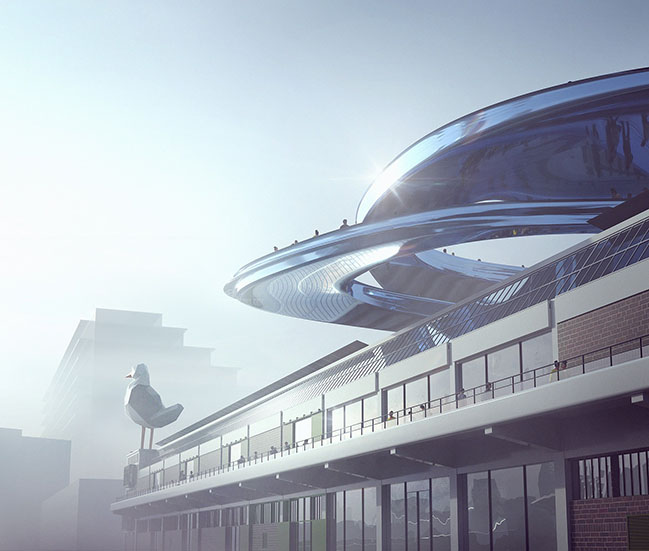
The new intervention sees two spiral staircases extend from the ground and form an observation deck at the top. Moving through the space with different rhythms, the staircases break down the massive scale of the original warehouse, adding more human-scale and intimate spaces. The stainless steel and wood materials used for the staircases contrast with the warehouse’s original concrete and steel materials, while also evoking the visitors’ imagination of boarding a ship.
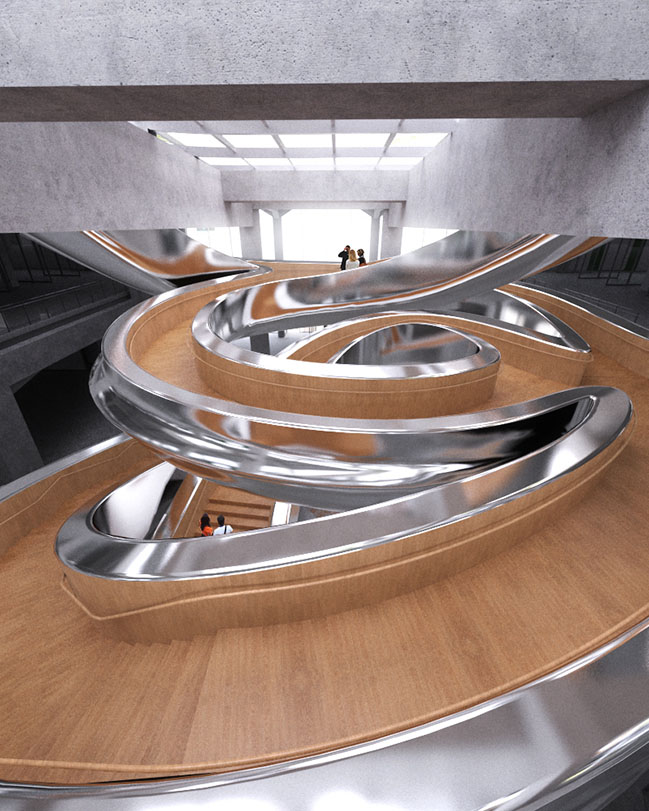
The FENIX Museum of Migration is also integrated into the surrounding community with a high degree of accessibility, with public entrances from both the riverside and the city. The ground floor combines creativity, culture, and culinary spaces to offer diverse activities, and to make art a part of people’s daily lives. After its completion, the museum will hold an exhibition on the theme of "movement," with contemporary artworks and archives curated in collaboration with local and international art institutions.

Mr. Pijbes added: “A museum is a phenomenon that has a very strict idea and image in most people’s minds. I want to find a word that has a kind of hybrid function, a place, a platform, an agora."
With the completion of FENIX, the Katendrecht Peninsula will become a bridge connecting the north and south of Rotterdam, inspiring more people through the universal theme of "migration."
Architect: MAD Architects
Client: Droom en Daad Foundation
Location: Rotterdam, Netherlands
Year: 2018 - 2024
Site Area: 13,200 sqm
Ramp Area: 1,050 sqm
Principal Partners in Charge: Ma Yansong, Dang Qun, Yosuke Hayano
Associate Partner in Charge: Andrea D’Antrassi
Team: Neeraj Mahajan, Marco Gastoldi, Edgar Navarrete, Cievanard Nattabowonphal, Jordan Demer, Chen Yien, Yuki Ishigami, Pittayapa Suriyapee, Claudia Hertrich, Alessandro Fisalli
Executive Architect: EGM
Monumental Architecture Renovation: Bureau Polderman
Construction Advisor: IMd Raadgevende Ingenieurs
Steel Constructor: CSM Steelstructures
Cladding Constructor: Central Industry Group (CIG)
Lighting Consultant: Beersnielsen lichtontwerpers
Installation Design: Bosman Bedrijven
Installation Advisor: DWA
Building Physics Advisor: LBP Sight
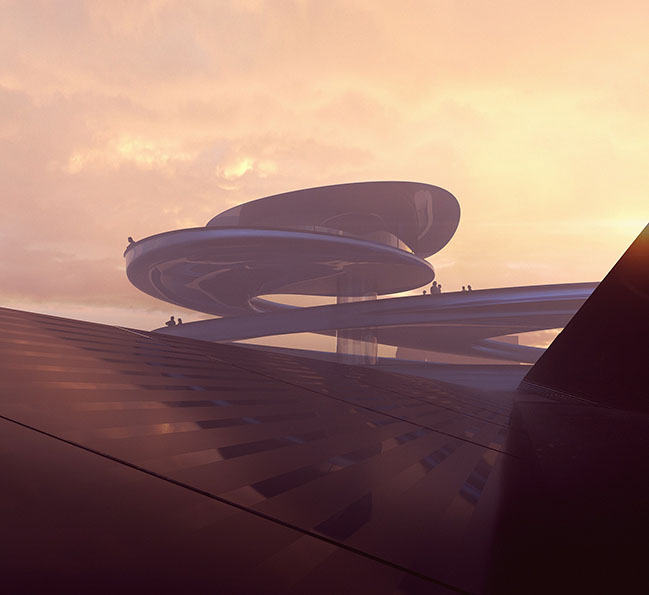
YOU MAY ALSO LIKE: Gardenhouse - The first project completed by MAD in USA
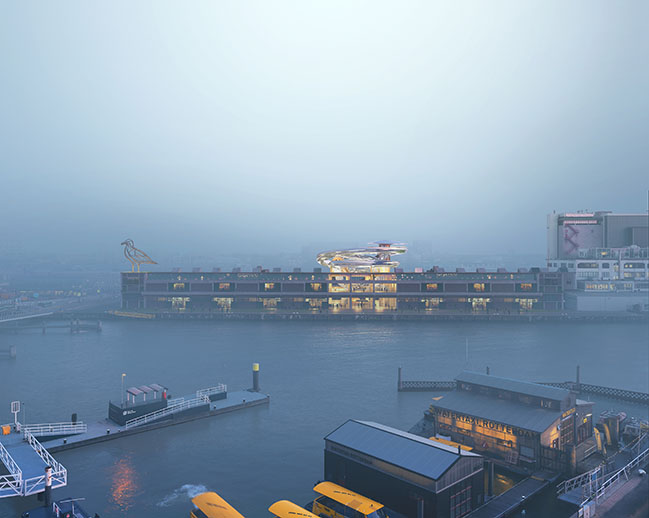

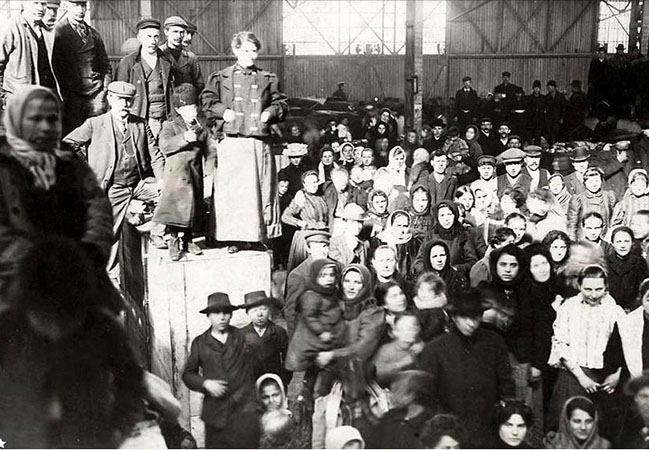
Immigrants boarding a ship in Rotterdam around 1910. About two million people made their way to Rotterdam harbor from 1880 to 1920 to begin a journey that would often end at Ellis Island in New York.
Collection Stadsarchief Rotterdam/Municipal Archives, Rotterdam
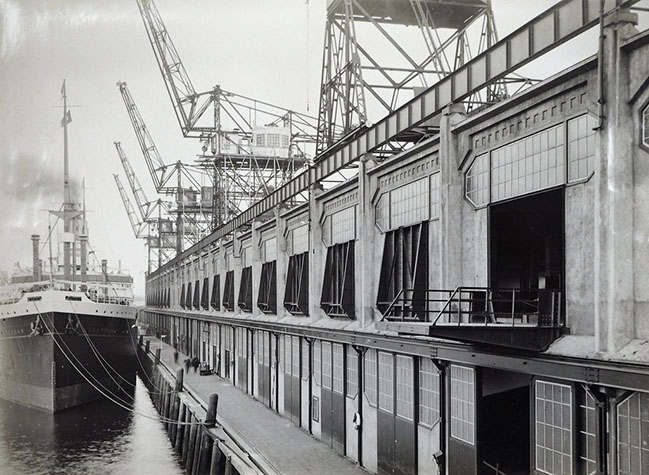
A ship docked at the Fenix warehouse around 1925. Collection Stadsarchief Rotterdam/Municipal Archives, Rotterdam
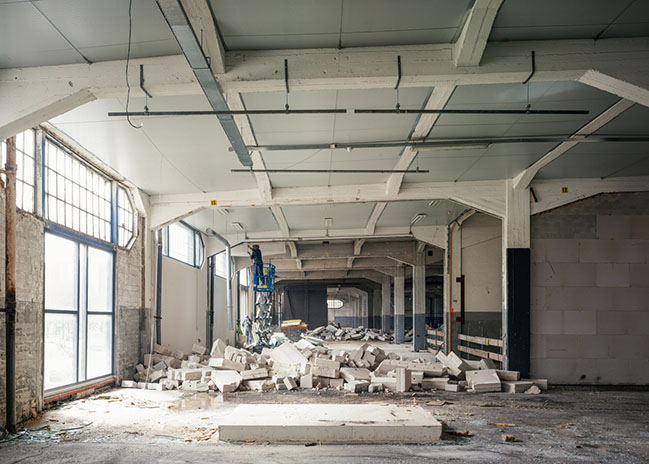
photo by RubénDarioKleimeer
YOU MAY ALSO LIKE: Wormhole Library by MAD
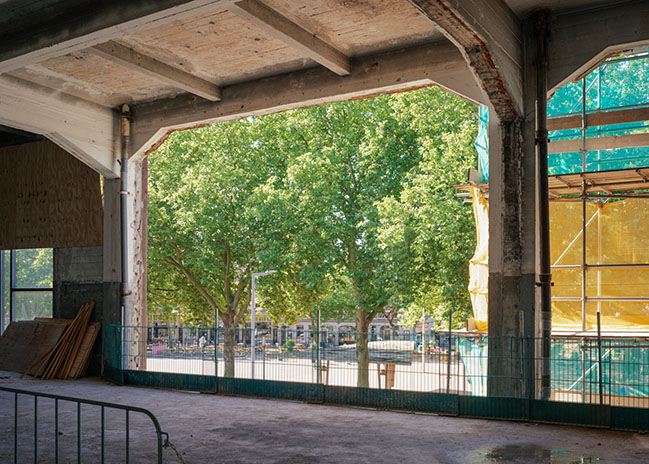
photo by RubénDarioKleimeer
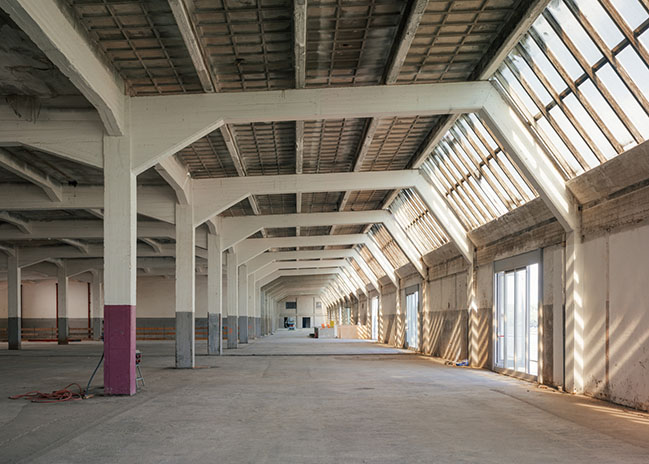
photo by RubénDarioKleimeer
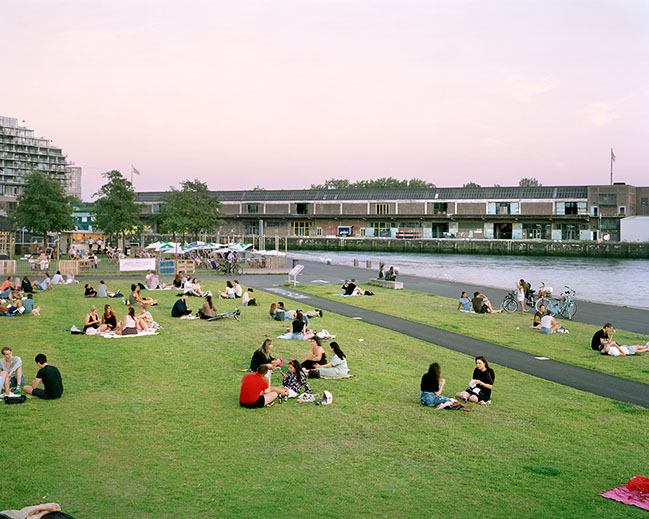
photo by RubénDarioKleimeer
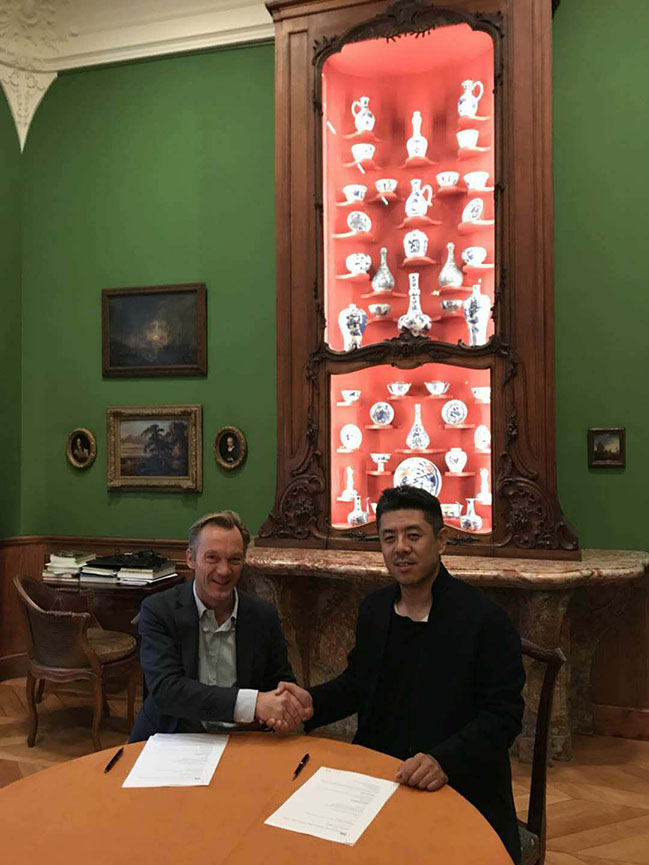
YOU MAY ALSO LIKE: Quzhou Sports Campus by MAD Under Construction
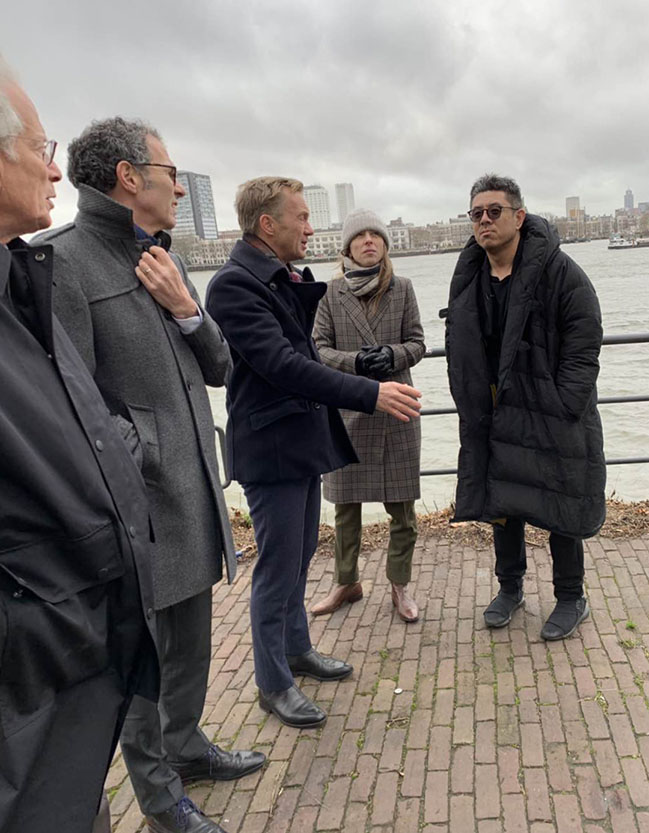
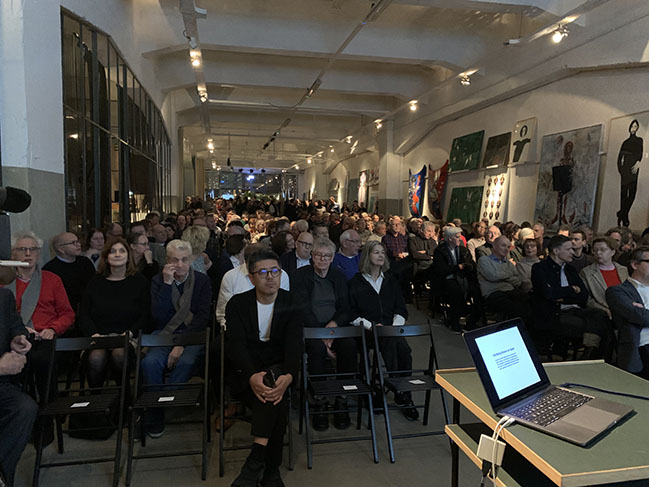
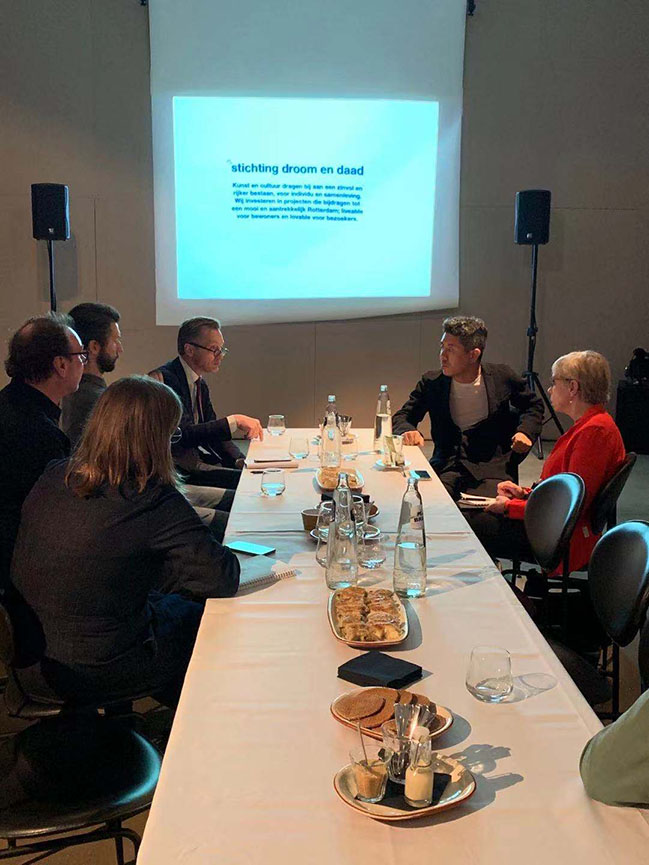
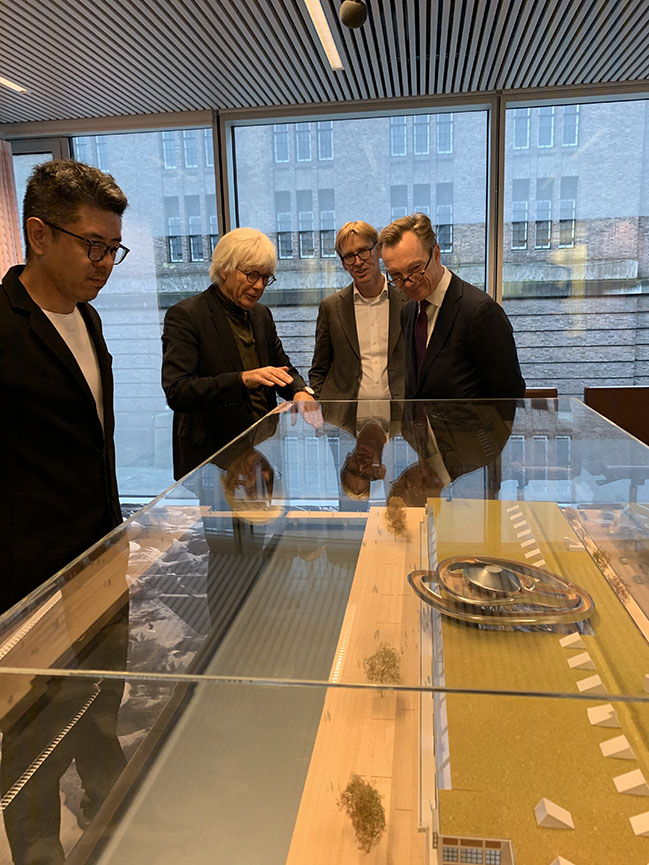
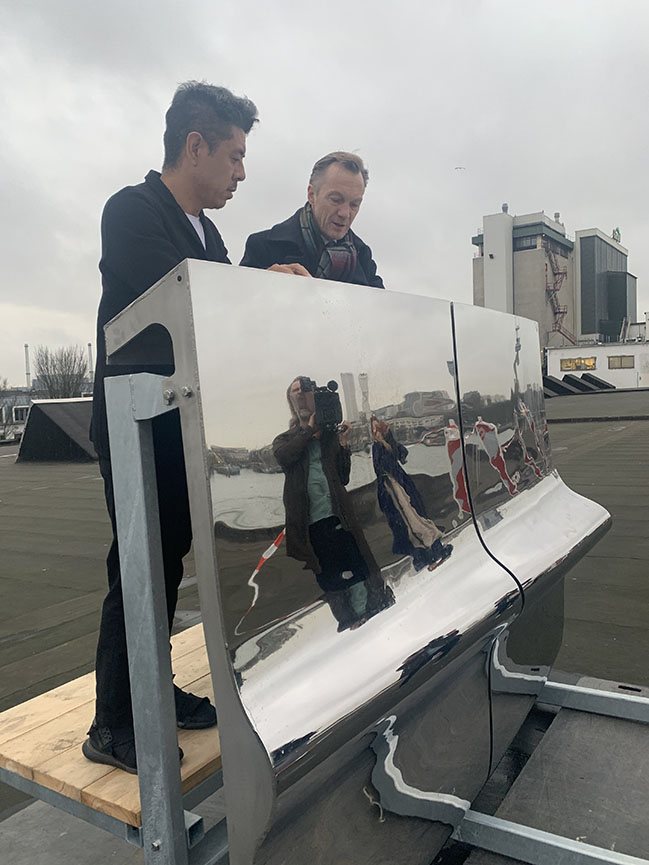
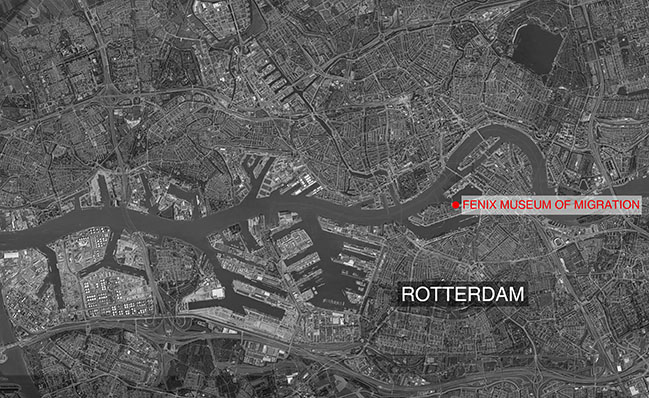
Since the 19th century, millions of immigrants have boarded ships on the Katendrecht Peninsula in Rotterdam. They sailed along the New Maas River towards the North Atlantic to start a new life on the other side of the Atlantic.
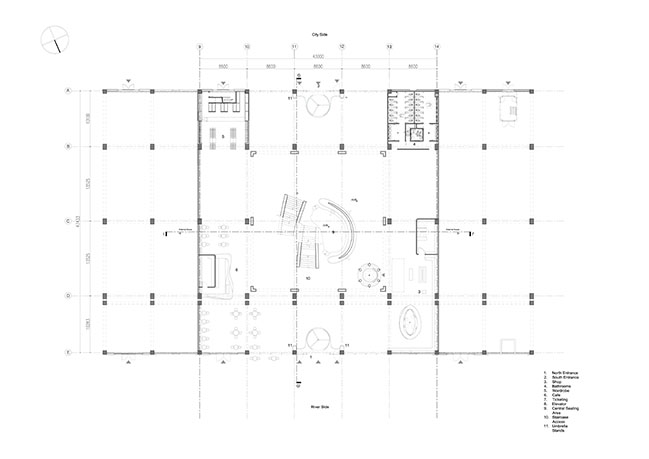
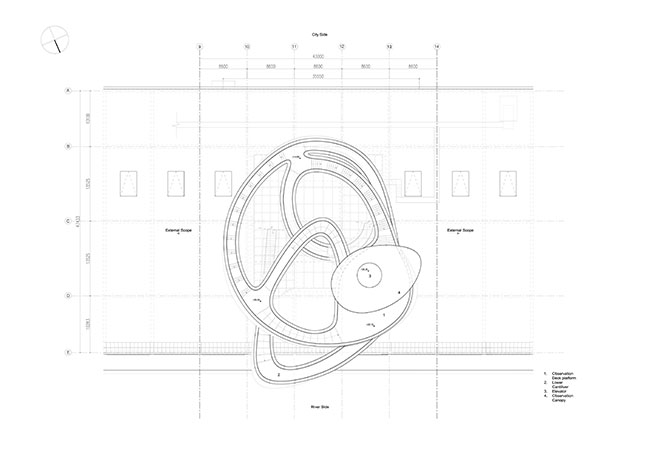
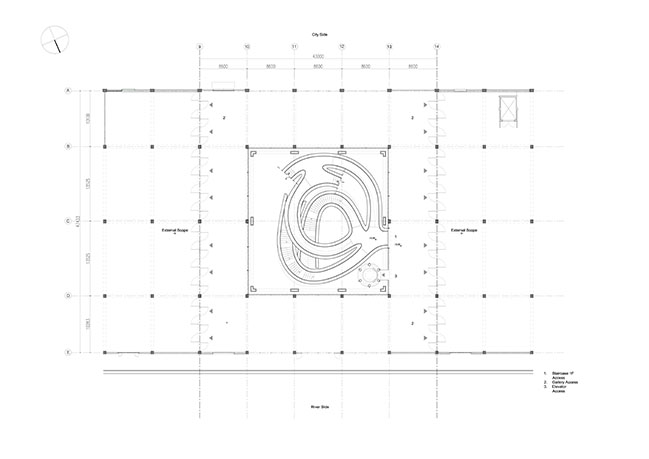
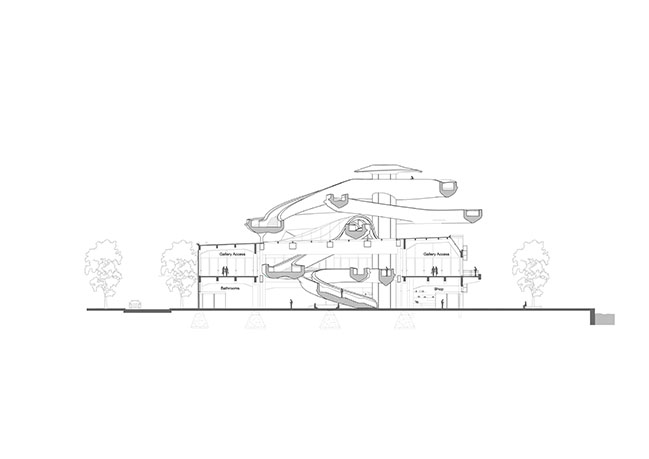
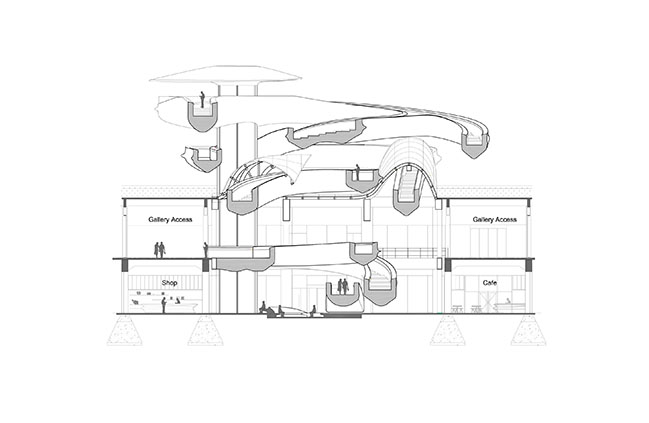
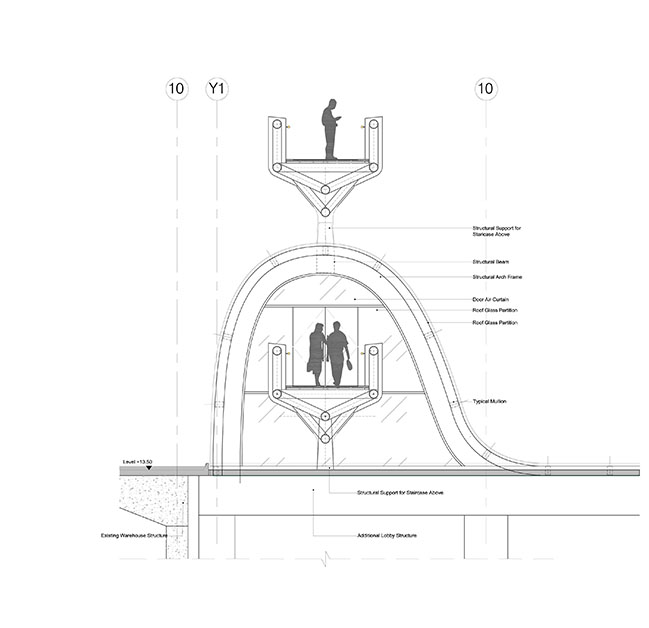
A detailed schematic diagram of the curved-glass rooftop section. The curved glass ceiling of the roof creates a smooth transition between indoor and outdoor spaces, allowing the stair structure to extend out organically and expressively.
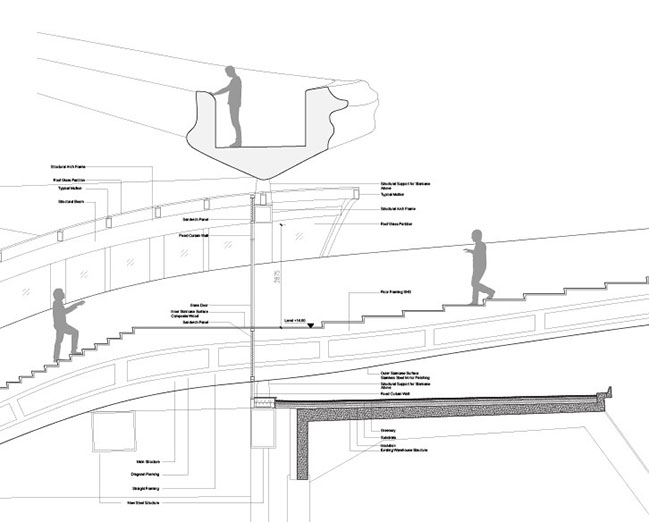
A detailed schematic diagram of the staircase section. The internal structure and height of the stairs fit the overall curved surface design. All platforms have a gentle slope to avoid right-angle turns and ensure the continuity of the curve.
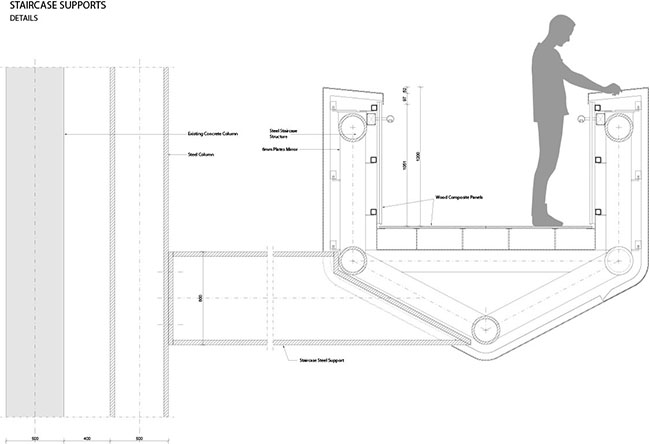
A detailed schematic diagram of the staircase section. Only two original beams and two columns were removed in the entire reconstruction. By retaining the main original concrete structure, a new structure was inserted to provide support for the stairs
FENIX Museum of Migration by MAD has broken ground
11 / 14 / 2020 MAD Architects' first cultural project in Europe, the FENIX Museum of Migration, has broken ground in Rotterdam. The project was commissioned by the Droom en Daad Foundation
You might also like:
Recommended post: Prahran Penthouse by Zunica Design
